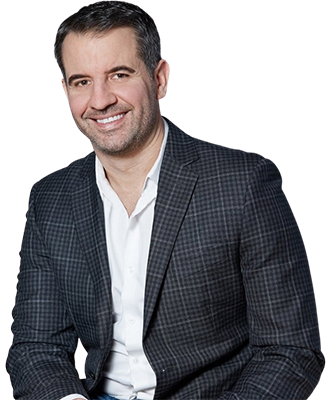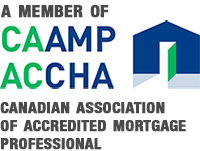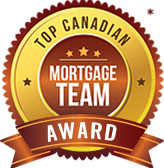


JESSE BRUN
Mortgage IntelligenceLicense #10428
Mortgage Broker (NB)
Mortgage Agent Level 2 (ON)

Second Mortgage Lenders Oshawa ON
Second mortgage lenders in Oshawa primarily rely on private lenders to provide the necessary funds. To be eligible for second mortgage financing in Oshawa, homeowners must have a substantial amount of equity in their property. Typically, these lenders offer short-term financing solutions, often ranging from one to two years, to bridge the gap until borrowers can secure more traditional financing from banks, credit unions, or B lenders. In major cities, second mortgage lenders might be willing to lend up to 85% of the property’s value, although loans exceeding 80% are uncommon unless the property is in a city with a population exceeding 50,000. While lenders usually prefer properties within city limits, some private lenders are open to financing homes in smaller towns or rural areas, albeit at a lower loan-to-value ratio, often between 60% and 70%.
Understanding Second Mortgage Financing
A second mortgage is an additional loan taken against a property that already has a primary mortgage. This type of financing is referred to as a "second" mortgage because the lender's claim is subordinate to the first mortgage in case of default. Due to the higher risk involved, second mortgages generally come with higher interest rates compared to primary mortgages.
Types of Second Mortgages
There are two main types of second mortgages available:
- Home Equity Loans: These provide a lump sum of money that is repaid over a fixed term with a fixed interest rate. They are ideal for large, one-time expenses like home renovations or debt consolidation.
- Home Equity Lines of Credit (HELOCs): HELOCs function similarly to credit cards, offering a revolving credit line based on home equity. Borrowers can draw funds as needed, and interest is paid only on the borrowed amount. HELOCs typically have variable interest rates.
Benefits of Second Mortgage Financing in Oshawa
Second mortgage financing offers several advantages, making it a popular choice for homeowners looking to leverage their home equity:
- Access to Large Amounts of Money: Homeowners can unlock substantial funds based on their property's equity, useful for various financial needs such as renovations, investments, or significant purchases.
- Lower Interest Rates: Compared to unsecured loans like personal loans or credit cards, second mortgages often come with lower interest rates because the loan is secured by the property.
- Potential Tax Benefits: Interest paid on second mortgages may be tax-deductible if the funds are used for home improvements, though this depends on local tax laws.
- Financial Flexibility: Funds from a second mortgage can be used for a wide range of purposes, providing homeowners with financial flexibility to manage their expenses.
Risks and Considerations
Despite their benefits, second mortgages come with certain risks that homeowners should consider:
- Risk of Foreclosure: Failing to make payments on a second mortgage can lead to foreclosure, as the lender can claim the property to recover their investment.
- Higher Interest Rates: Second mortgages typically carry higher interest rates than first mortgages due to the increased risk for lenders.
- Increased Debt: Taking out a second mortgage increases your overall debt burden, which can be risky if your financial situation changes unexpectedly.
Eligibility Criteria for Second Mortgage Financing in Oshawa
To qualify for a second mortgage, homeowners must meet several criteria:
- Sufficient Home Equity: Lenders generally require that you have significant equity in your home, often at least 20-30%.
- Credit Score: While private lenders focus more on home equity, a good credit score can help secure more favorable terms and lower interest rates.
- Income and Employment Stability: Demonstrating a stable income and employment history is crucial to proving your ability to repay the loan.
- Property Condition: The condition and marketability of the property are important factors that affect the lender's risk assessment.
The Application Process for a Second Mortgage
Applying for a second mortgage involves several steps, from assessing your equity to choosing the right lender and submitting your application. Here’s a detailed look at the process:
- Evaluate Your Equity: Determine the amount of equity in your home by subtracting the outstanding balance on your primary mortgage from the current market value of your property.
- Research Potential Lenders: Compare various private lenders in Oshawa to find the ones offering competitive interest rates and favorable terms.
- Prepare Your Documents: Gather all necessary documents, including proof of income, employment history, credit report, and details about your current mortgage.
- Submit Your Application: Fill out the lender's application form, providing accurate and complete information to expedite the approval process.
- Appraisal and Approval: The lender will likely require an appraisal of your property to determine its market value. Once the appraisal is complete and all documentation is reviewed, the lender will decide whether to approve your loan.
- Review the Terms: Carefully review the terms of the second mortgage, including the interest rate, repayment schedule, and any fees involved. Ensure you understand all aspects of the loan before signing the agreement.
- Closing the Loan: If you agree to the terms, the final step is closing the loan, which involves signing the necessary paperwork and receiving the funds.
Practical Uses of Second Mortgage Financing
Second mortgage financing can be utilized for various practical purposes, providing homeowners with the flexibility to manage their finances effectively:
- Home Renovations: Investing in home improvements can increase the value of your property and enhance your living experience.
- Debt Consolidation: Using a second mortgage to pay off high-interest debt can simplify your finances and reduce overall interest payments.
- Emergency Expenses: Accessing funds through a second mortgage can provide a financial cushion for unexpected expenses, such as medical bills or urgent repairs.
- Investment Opportunities: Leveraging home equity to invest in other properties or business ventures can potentially yield significant returns.
- Education Expenses: Financing higher education for yourself or your children can be a smart use of home equity, providing long-term benefits.
Choosing the Right Second Mortgage Lender in Oshawa
Selecting the right lender is crucial to securing favorable terms and minimizing risks. Here are some tips to help you choose the best second mortgage lender in Oshawa:
- Compare Multiple Lenders: Don’t settle for the first lender you find. Compare rates, terms, and fees from several lenders to find the best deal.
- Check Reviews and References: Look for reviews from other borrowers and ask for references to gauge the lender's reliability and customer service.
- Understand the Terms: Make sure you fully understand the terms of the loan, including the interest rate, repayment schedule, and any fees involved.
- Consult a Financial Advisor: If you're unsure about the best financing option for your situation, consult a financial advisor who can provide personalized advice.
- Negotiate Terms: Don’t be afraid to negotiate with lenders to secure better terms, such as a lower interest rate or reduced fees.
Conclusion
Second mortgage financing in Oshawa offers homeowners a valuable tool to access their home equity for various financial needs. By understanding the types of second mortgages, the benefits and risks involved, and the eligibility criteria, you can make an informed decision about whether this type of financing is right for you. Remember to compare multiple lenders, review the terms carefully, and consider consulting a financial advisor to ensure you choose the best option for your unique situation. With the right approach, second mortgage financing can provide the funds you need while helping you achieve your financial goals.


